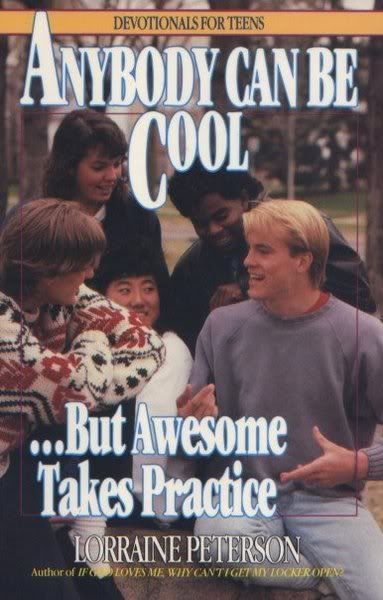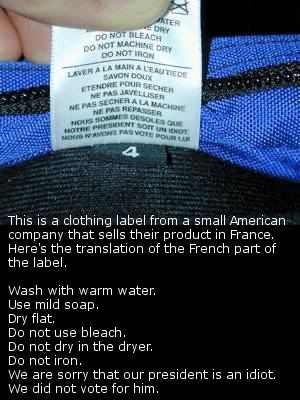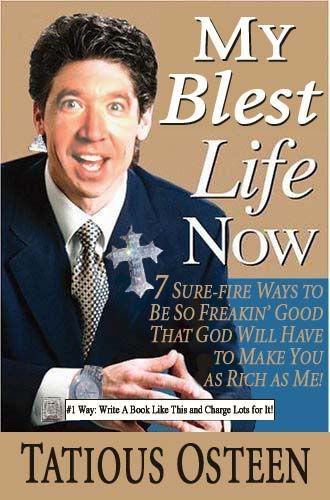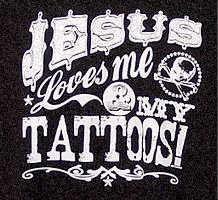I have never liked having long hair. When I was a kid I used to get ‘step haircuts’ which were popular in the early nineties and resembled the ‘bowl cut’ of my father’s era. It was short and rounded on the sides and longer on top. For a short while I even parted it in the middle (a stage I wish I could re-do…excuse the pun).
When I was 12 these missionaries from Scotland came to our church. After a boring service and slideshow (with lots of castles and few, if any, pictures that looked like the missions work), the missionaries came to my father’s office to fellowship (my dad was the pastor). With a very concerned look in her eyes the wife approached me. She asked me if I liked my haircut and if I had ever read anything in the Bible about it. No? Then she pulled a piece of paper out of her Bible like a gun from a holster.
It was an extensive Study on Leviticus 19:27. The verse reads: “You shall not round off the side-growth of your heads nor harm the edges of your beard.” The article, went on to explain the Scottish Druid practices of Rounding their Hair to mirror the stars and circumference of the sky for which they worshipped. According to the article, their practices (including haircuts like mine) worshipped false gods and opened them up to evil spirits… and here I was with the same haircut. Unbeknownst to me, I was opening up my heart for Satan. I could even be demon-possessed & not realize it!!! Who would have ever known (that must be where New Kids On The Block achieved their sadistic power over the young girls of America!).
I did not change my hair-style.
A couple of years later some wonderful well-meaning people came through our church from Singapore. They were Indian and had been saved from the Hindu Religion. The Woman had been a Hindu Witch and spoke extensively about her incredible conversion and God’s saving power. One of the nights, she got on this kick about “Power Beads.” She let us know that those practicing Hinduism believed in the supernatural power of these beads and opened themselves up to spiritual possession as a result of their religious practices. She was unnerved at the fact that similar looking beads were being sold all over America in Wal-Marts and 7-eleven’s everywhere, and young people were being manipulated by the Demonic world because they wore these power beads.
The problem, at least in my mind, was that the American Teens who wore them, for the most part, had No Faith in the Beads. They were not wearing them for health or wealth. They were not wearing them for religious practices. They were accessorizing! This was a huge jump in spiritual logic for me…even for a mystical Pentecostal.
I took my allowance out and bought a bead wristband the next day.
Now I know I’m painting myself as a rebel (which I was), but I was sincere in my action. I wanted to prove that this whole line-of-thinking was bollocks. I’m still a Christian today and I’ve never been more in love with Christ. I never got possessed as far as I know, (though I did get obsessed with woman-kind for a while…but that’s a totally different story). The Point Is: My Haircut and My Beads had Nothing to do with religious practices and what may have happened in other cultures never happened to me.
That line of logic, I’m sure you’ll agree, is absurd.
“Serial Killers like Gacy dress up as clowns, so If I dress up like a clown, I will become a serial killer.”
It doesn’t work.
If you look at this whole passage in Leviticus, it says:
“You shall not eat anything with the blood, nor practice divination or soothsaying. You shall not round off the side-growth of your heads nor harm the edges of your beard. ‘You shall not make any cuts in your body for the dead nor make any tattoo marks on yourselves: I am the LORD. ‘Do not profane your daughter by making her a harlot, so that the land will not fall to harlotry and the land become full of lewdness. ‘You shall keep My sabbaths and revere My sanctuary; I am the LORD. ‘Do not turn to mediums or spiritists; do not seek them out to be defiled by them. I am the LORD your God.” Leviticus 19:26–31 — New American Standard
THIS is the main argument from a concerned Christian crowd against tattoos… that and “Graffiti-ing the ‘Temple of the Holy Ghost’.”
The Problem I see with this argument against tattooing is the same I saw with the bowl-cut hairstyle that’s represented in verse 27 directly before it.
I recently read about this passage and agree:
In this passage, God is speaking to His covenant people Israel. He is specifically telling them to stay far from the religious practices of the surrounding people groups. The prohibited religious practices in these verses include eating bloody meat, fortune telling, certain hair cuts related to the priests of false cults, cutting or marking the body for dead relatives, cultic prostitution and consulting psychics. All these practices would lead God's beloved people away from Him and toward false gods that were not Gods at all. In the midst of this context we find the word translated “tattoo marks” in verse 28. It is important to note here that the context of this passage is not one of body décor but one of marking one's self in connection with cultic religious worship. Bible commentaries tell us much about the eastern religious practices that God was warning His people to shun.
These prohibitions seem to relate to pagan religious customs which should be avoided, including pagan mourning rites (vv. 27-28) Walvoord, J. F., Zuck, R. B., & Dallas Theological Seminary. (1983–c1985). The Bible knowledge commentary: An exposition of the scriptures. Wheaton, IL: Victor Books.
The practice of making deep gashes on the face and arms and legs, in time of bereavement, was universal among the heathen, and it was deemed a becoming mark of respect for the dead, as well as a sort of propitiatory offering to the deities who presided over death and the grave. The Jews learned this custom in Egypt, and though weaned from it, relapsed in a later and degenerate age into this old superstition (Is 15:2; Je 16:6; 41:5). “nor print any marks upon you” (v:28 )—by tattooing, imprinting figures of flowers, leaves, stars, and other fanciful devices on various parts of their person. The impression was made sometimes by means of a hot iron, sometimes by ink or paint, as is done by the Arab females of the present day and the different castes of the Hindus. It it probable that a strong propensity to adopt such marks in honor of some idol gave occasion to the prohibition in this verse; and they were wisely forbidden. Jamieson, R., Fausset, A. R., Fausset, A. R., Brown, D., & Brown, D. (1997). A commentary, critical and explanatory, on the Old and New Testaments. On spine: Critical and explanatory commentary. (Le 19:28). Oak Harbor, WA: Logos Research Systems, Inc.
“Make any cuttings in your flesh” (v:28): the reference here is to the practice of making deep gashes in the skin while mourning the death of a relative. This was done to provide life blood for the spirit of the dead person rather than to express sorrow. On account of the dead: as indicated above, this describes the purpose of all the actions in verse 27 as well as verse 28. Péter-Contesse, R., & Ellington. (1992). A handbook on Leviticus. UBS handbooks; Helps for translating (Page 296). New York: United Bible Societies.
The “tattoo” marks described in Leviticus 19:28 were clearly related to false religious practices. The word translated tattoo in our English Bibles is the Hebrew word “qa aqa”, this word appears only one time in the Bible, here in this passage Leviticus. The word “qa aqa” means literally “to cut” but taken with the surrounding words indicates a cutting that left a mark imprinted in the skin. This could have been a form of branding, scarring, cutting or a process where ink was inlaid into the skin; there is not enough data to fully define exactly what this word meant. However we translate the word “qa aqa” though, in this passage, it is certainly used in the context of cultic religious worship. The prohibition against “qa aqa,” (translated tattoo) was to keep the Israelites from being involved or affiliated with cultic worship practices.
The tattoo of today is much different than it was for those who originally received the Pentateuch. Today tattoo is a decorative means of self expression and personal decoration. In our current culture people modify their appearance for beauty in many ways such as clothing choice, makeup, plastic surgery, haircutting and coloring, weight loss, body-building, and ear piercing. Some of these practices have a history in ancient ritual and false religion, but in our cultural context they do not denote a connection with evil or false faith. In the same way tattoos today do not link the wearer to cultic worship practices and is not generally practiced for ancient religious purposes, tattoos today are for ornamentation.
A further reason to believe Christians are free to tattoo their bodies is that New Testament believers are not bound by the Old Testament laws to gain or regain right relationship with God. If we were to obey the laws of the Old Testament we would also be bound by rules that would restrict shellfish and pork eating, hairstyles, wearing of clothes made from two different fabrics, even eating cheese on hamburgers (yes, it is true). Some also feel that modifying the body somehow defiles God's creation, but if this was true would it be right to pierce ears, correct a club foot, cut hair, clip nails, get a tan or use orthodontia? Each of the previously mentioned practices modifies the way we were originally created, some permanently. Getting a tattoo is a deeply personal choice that falls in the category of personal appearance and is vitally connected to the freedom of the believer. The Apostle Paul reminds us that the Old Testament Law was designed by God was to lead people toward Jesus. Now that Jesus has come and set us free, we are not under the law for our good standing with God. Our right standing before God comes from placing our trust in Jesus’ death on the cross to pay for our debts, not on following the Old Testament regulations.
“Therefore the Law has become our tutor to lead us to Christ, so that we may be justified by faith. 25 But now that faith has come, we are no longer under a tutor.” Galatians 3:24–25 — New American Standard
As New Testament followers of Jesus we are not under restriction in the area of personal décor.
Tattoo of today can describe images that merely please the wearer, or have deeper meaning to the owner. Many Christians today are tattooing themselves not in tribute to a false idol or anti-Christian deity, but with love for the one true God and Creator. Many today utilize this permanent marking a way of giving glory to God. Some find that Christian tattoos attract questions about faith and provide opportunities to give God glory by allowing the story-telling of His Love to those who aren’t convinced yet. (1)
So here’s the deal. What is a sinner? In the former Generation, a sinner was someone who drank, smoked, cursed, and had tattoos.
What happens when this changes? What happens when we realize that, although these things may accompany people who struggle with many sins in their lives, they may not in fact be sins in themselves?
The Problem I’ve witnessed is that, as culture shifts, the younger generation grows and accepts things the older generation did not…for which we are demonized, branded and socially tattooed… which is rather Ironic. Another random piece of information that is interesting to me is how Jesus is pictured as a Tattooed Warrior returning to earth in Revelation 19:16.
I’m not saying I’m going to rush out and get a tattoo like I did with the power-beads; I’m just pointing out the principle: we have to get away from this legalistic, labeling perspective. I believe we do more harm than good when we attack inanimate objects or neutral practices rather than true inward heart conditions. We run around like a housemaid cleaning cobwebs instead of killing the spider. There is a real issue is someone is a “cutter” and getting tattoos to ease emotional and spiritual pain in their life…but tattoos aren’t the problem…they’re the expression. We must, with the help of the Holy Spirit, address real issues and speak into the lives of the hurting and broken…not chastise them because of their outward appearance.
I could picture Jesus saying something like this, if He had a Blog: “Which is the greater sin? Tattooing one’s own body to tell the story of one’s life, pain & beliefs –OR- Tattooing our brothers and sisters as sinners socially and cutting their flesh with our teeth as a result of our own religious practices? Isn’t the second one more similar to the passage in Leviticus?”
Reference:
(1) http://www.sacredink.net/tattoo_and_the_bible/












